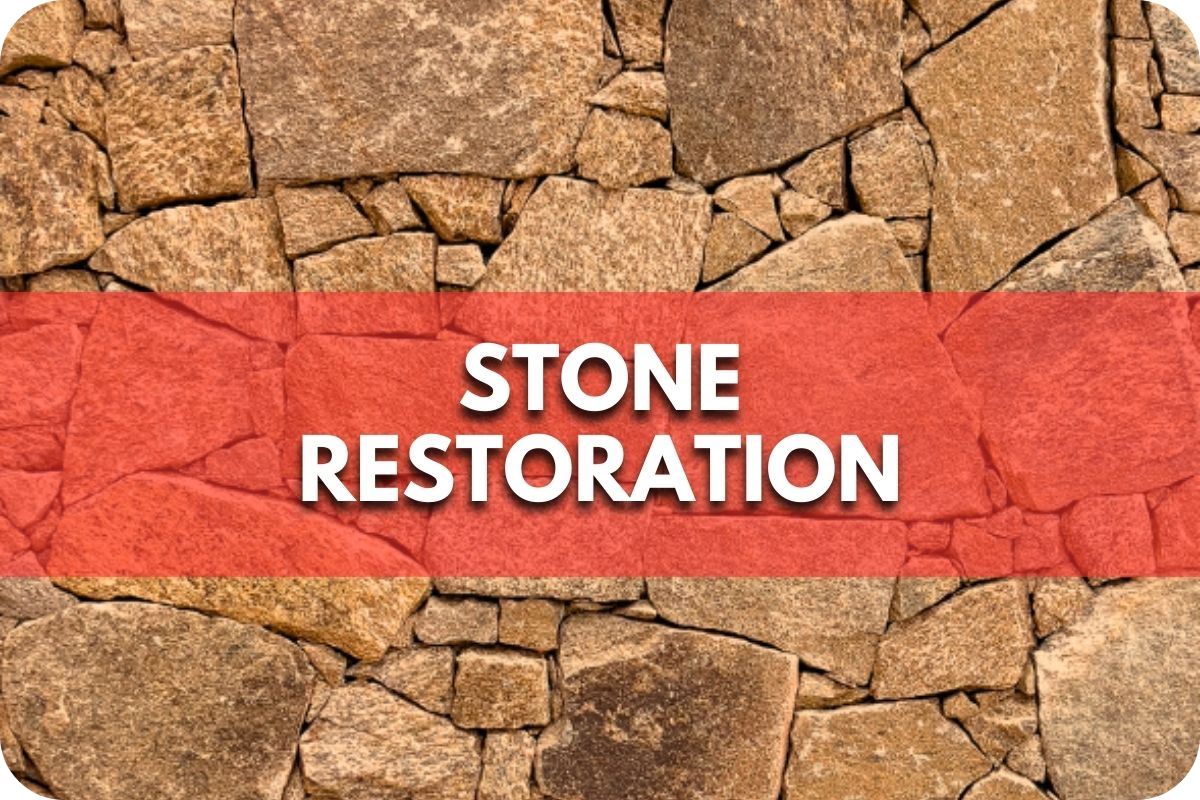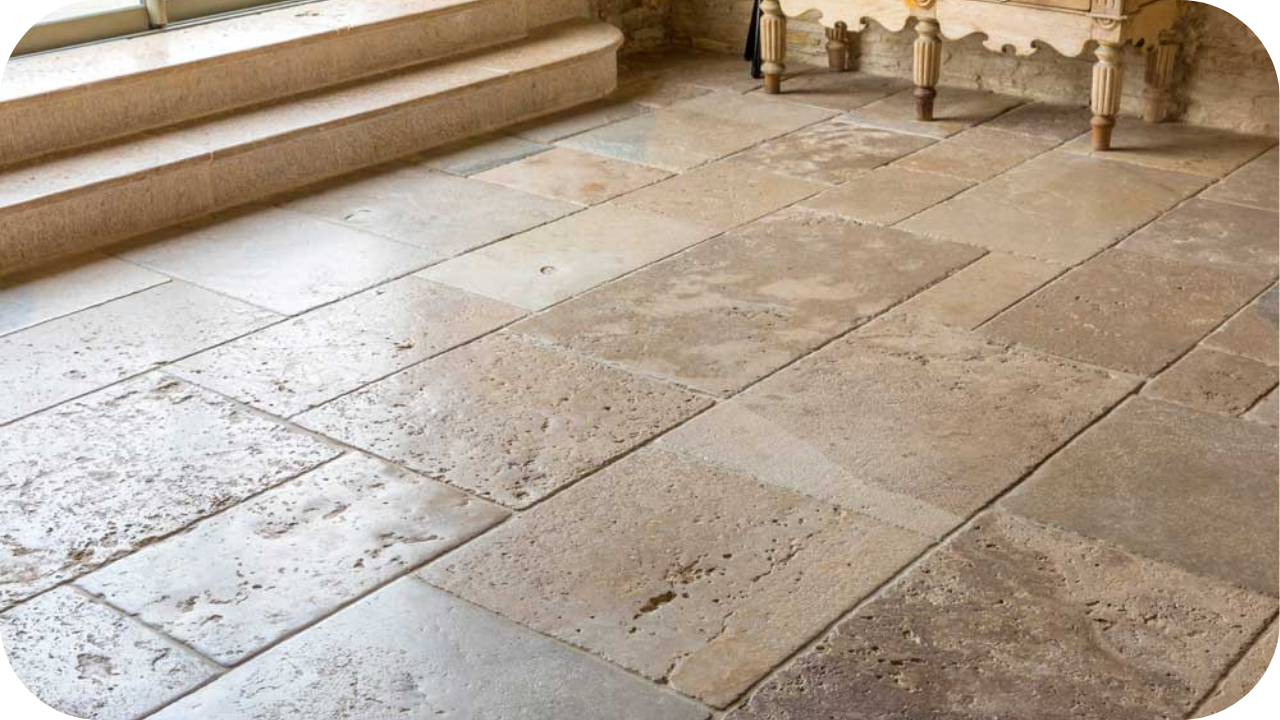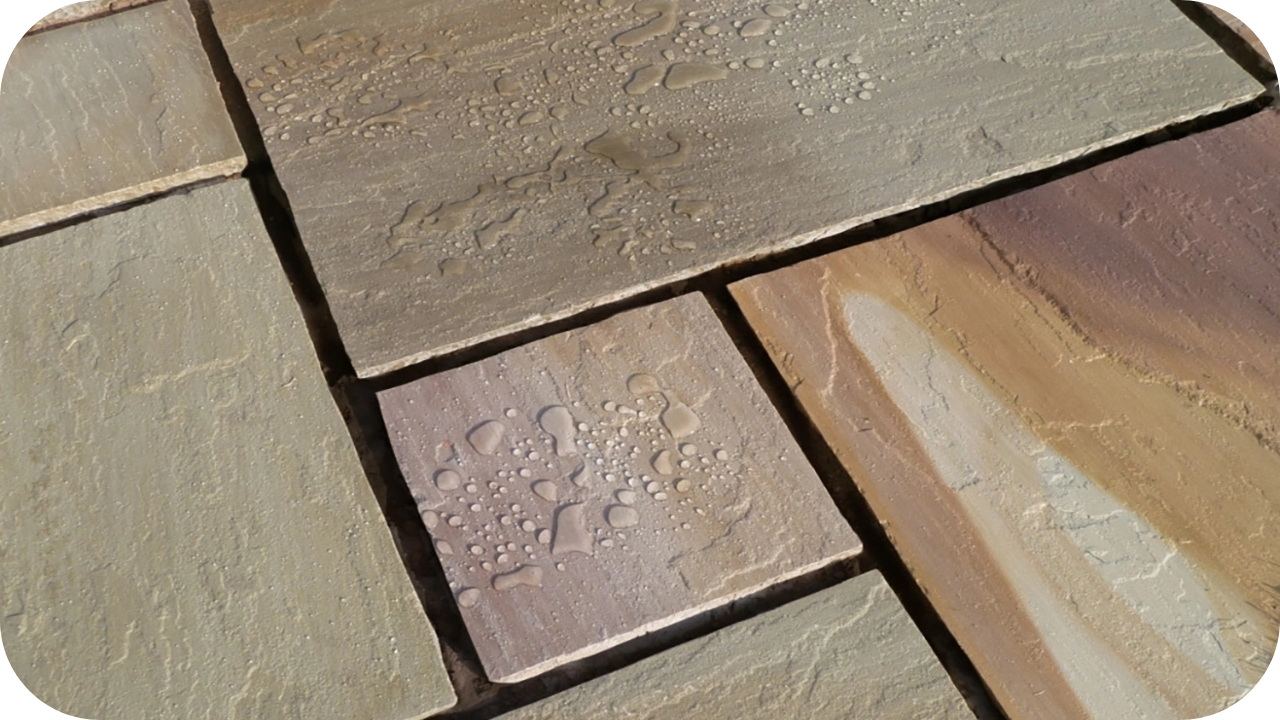
Stone surfaces, whether in your home or outdoor areas, can become worn, stained, or damaged over time.
Attempting to restore them yourself can be tempting, but improper techniques or products can cause further damage, leading to costly repairs. On the other hand, hiring professionals may seem expensive.
This article guides when DIY fixes are appropriate and when it’s best to call in experts for stone restoration, helping you make an informed decision while protecting your investment.
Signs That Professional Restoration is Needed
It’s time to consider calling in the experts when DIY methods can’t solve the following problems:
1. Deep Stains and Etching
- If stains have penetrated beyond the surface layer of your stone or acidic substances have caused etching (dull spots), DIY cleaners won’t be able to fix the problem effectively.
- Professionals utilize specialized techniques, such as honing (grinding down the surface) and polishing, to remove these deep-set imperfections and restore the stone’s natural shine and smooth finish.
2. Structural Damage
- Cracks, chips, or loose tiles in stone surfaces are not just cosmetic issues – they compromise the stone’s structural integrity.
- Professional stone restoration experts have the necessary expertise and specialized tools to adequately address these structural problems, ensuring sound repairs and preventing further worsening of the damage over time.
3. Severe Wear and Tear
- In high-traffic areas, stone floors can experience significant wear and tear, becoming dull, uneven, and losing their original lustre.
- Professional stone restoration services can completely revitalize worn stone surfaces, restoring them to their original beauty and evenness through techniques like grinding, honing, and polishing.
DIY Fixes for Minor Issues
With the right approach, you can tackle some common minor stone problems yourself:
1. Surface Cleaning and Maintenance
- Regular cleaning with a pH-neutral, stone-safe cleaner and soft cloths or mops is essential for removing surface dirt, grime, and spills, helping keep your stone surfaces looking their best.
- Avoid harsh chemical cleaners or abrasive scrubbing pads, as these can etch, scratch, or damage delicate stone surfaces.
2. Minor Scratch and Chip Repair
- Small, shallow scratches and chips in stone can often be repaired using DIY stone repair kits containing coloured epoxy or putty compounds matched to your stone.
- Follow the product instructions carefully, and practice your technique in an inconspicuous area first to ensure you achieve the desired results.
3. Enhancing Shine and Luster
- When stone surfaces start to look dull, you can help restore their natural shine and lustre by using stone polishing powders or creams specifically designed for your type of stone.
- For more intensive shine restoration on floors, you may be able to rent or purchase diamond polishing pads. Use them cautiously and according to the instructions on your stone surfaces.
When to Consult a Professional for Advice
Here are guidelines for determining when it’s best to consult a professional for advice, even if DIY fixes seem feasible.
Identifying the Problem: If you’re unsure about the specific type of stain, the root cause of damage, or even what kind of stone you’re dealing with, it’s advisable to seek professional guidance. Misidentifying these factors could lead to using ineffective or harmful DIY methods.
Unsure of Your Approach: If the DIY solutions seem overly complex, involve the use of harsh chemicals that require precise handling, or you lack confidence in choosing and executing the right method, consulting an expert is the safer route to avoid costly mistakes.
High-Value Surfaces: When dealing with expensive, rare, antique, or sentimental stone surfaces with significant monetary or personal value, taking a DIY approach poses greater risks. Professionals have the specialized knowledge to properly care for and restore these high-value stones without compromising their integrity or beauty.
Example of a situation where professional assessment and recommendations are warranted to avoid causing further damage to stone surfaces.
Potential for Further Damage: If you suspect that visible surface problems on your stone, such as cracks or chips, could indicate underlying structural issues or more extensive damage, it’s crucial to seek professional assessment before attempting any DIY fixes.
Addressing only the surface problem without understanding the root cause could worsen the damage or prevent the crucial repairs needed.
For instance, if you notice cracks forming in your stone countertop or floor tiles, this could signify more serious issues like subfloor settling, excessive weight loads, or improper installation that a DIYer may not diagnose or address properly.
Attempting DIY crack repairs without assessing and fixing the core problem first could result in a surface-level fix that fails to prevent the cracks from worsening or new ones from forming.
In such cases, having a professional stone restoration expert evaluate the situation can help identify any hidden structural problems and recommend the appropriate solutions, repairs, or preventative measures needed to avoid causing further, more costly damage down the line.
Conclusion
Understanding when to tackle stone restoration yourself and when to call in professionals is crucial for maintaining the longevity and beauty of your stone surfaces.
Don’t compromise your investment by guessing – prioritize expert guidance when needed.
Contact Splendour In Stone Melbourne for professional stone restoration services and expert advice on DIY maintenance and repairs that will keep your stone looking its best for years to come.
More To Explore

French Provincial Look Using Stone Paving
Looking to create an elegant yet rustic outdoor space? The French Provincial look is the perfect combination of timeless charm and modern sophistication, and stone

How to Tell If Stone Is Porous or Not
When selecting stone for your home or project, knowing whether it’s porous can make a huge difference. Porosity affects how your stone absorbs water, stains,


